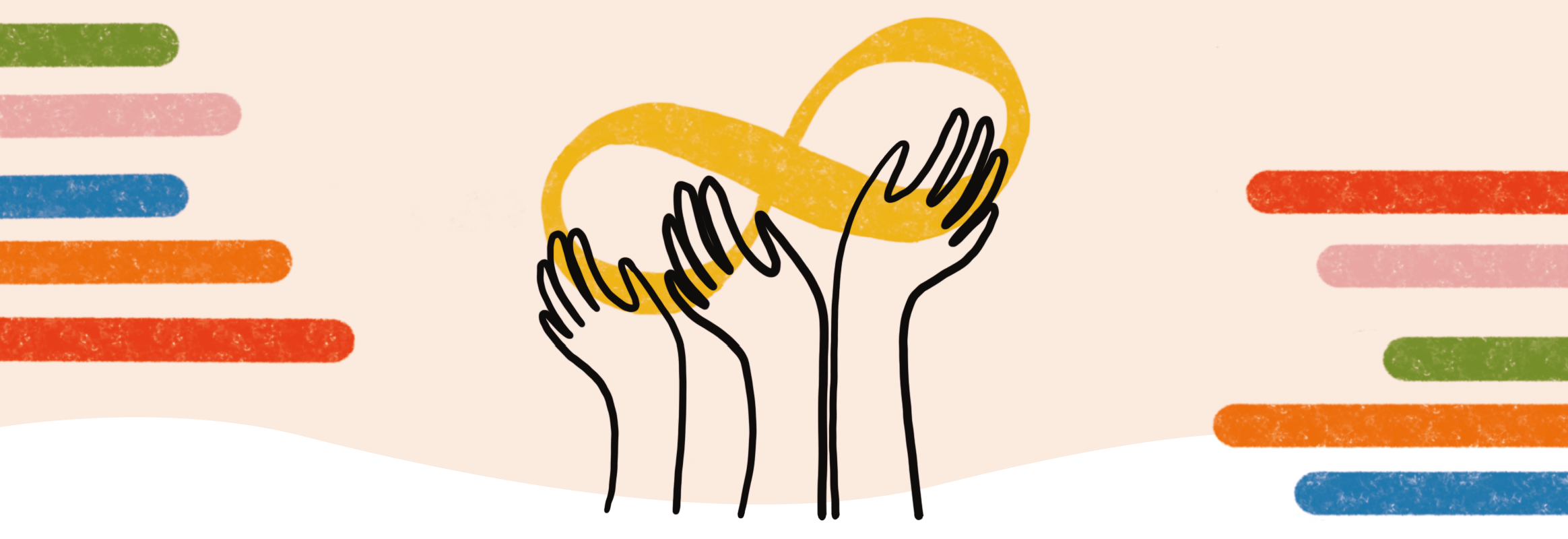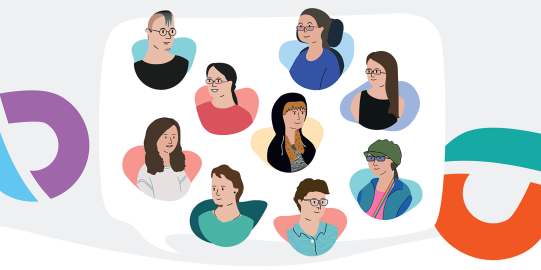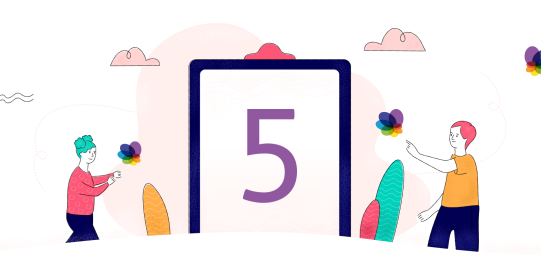Here are six ways to become an autism ally:
6 ways to become an autism ally
- 4 minute read
As an autistic person, Autism Acceptance Month can be rocky. It is thirty days of striving to be heard over the voices of non-autistic people. This year, we at AssistiveWare want to focus on how you can be a better ally to autistic people.

Listen to and learn from autistic people
There is a lot of information on autism out there, and most of it comes from non-autistic (allistic) people. Whenever possible, listen to autistic people as your first source of information, particularly autistic people who have been in the same situation you are trying to learn about.
This includes listening to the autistic people in your life! Remember to ask people what they think and why they do things before you go looking for the answer from someone else. An autistic person who is learning to communicate with self-generated language needs you to put equal effort in as they are learning to understand what they’re communicating. Be creative, and know that listening takes time.

Use appropriate language
Avoid language that treats autism or disability in general like a tragedy or burden. This can look like replacing phrases like “red flags” with “traits” or “signs” and replacing words like “deficits” and “delays” with “differences”. The autistic community often advocates for identity-first language (autistic person) over person-first language (person with autism), because we don’t feel that autism is something bad that we need to distance ourselves from.
Avoid euphemistic or patronizing language like “other-abled” “differently-abled” or “special” (unless someone refers to themself that way). Being straightforward and clear is important to autistic people. Disability isn’t a bad word.

Taking action out in the world
Being an ally isn’t just reading and listening. You have to implement what you learn.
Learning all these new things makes you want to go spread the word! Make sure that when you do, you make it clear that you’re not the expert. Autistic people are. The world will change the most by giving autistic people positions of power.
Ask local organizations how many autistic people gave input on their programs. Find out what changes autistic people want in your community, and help smooth the road to get there. Don’t be shy about how important your cause is or about how much you have to learn still.

Supporting autistic AAC users
Many autistic people have reasons to use AAC. Some of us are nonspeaking, some of us have unreliable or intermittent access to speech, and some of us say things with speech that doesn’t match what we’re really thinking. Supporting autistic people means advocating for access to AAC for everyone, without any prerequisite skills or perceived deficits.
When supporting an emerging AAC user, their autistic traits can greatly benefit AAC learning! Some people try to make an autistic learner follow neurotypical social rules. These people may rely on hand-over-hand, spend lots of time on greeting and other social interaction words, or try to stop a learner’s stimming. Don’t be that person! Find communication opportunities around special interests. Get engagement through adding favorite spoken scripts onto AAC buttons. You can use stimming to talk about movement and position words too.

Seek out a variety of autistic experiences
If you listen to only the autistic voices you are exposed to, you will be ignoring a large portion of the community. In order to hear from the most marginalized autistic people, you must seek those voices out. For example, you can seek out autistic people of color, nonspeaking autistic people, intellectually disabled autistic people, autistic people with high support needs, and autistic people with other co-occurring disabilities.
When you find these people, don’t passively treat them as a resource. Advocate for them to have a seat at the table, share their work, and take the time to consider even the things you don’t want to hear.

Celebrate autistic existence
Autism comes with challenges and joys. Autism acceptance is more than acknowledging the existence of autistic people; it’s celebrating it! View autism not as a collection of challenges but as a collection of shared experiences, good and bad. You don’t need to hide from the challenges. They just don’t need to be the center of your ideas about autism.
You can see an autistic kid and recognize the cool autistic adult they’ll become. See an autistic adult and recognize the world is better because they’re in it because they contribute to the diversity of perspectives that makes humanity so awesome. Learn about someone’s special interest. Ask your blunt autistic co-worker to edit your presentation because they don’t pull punches. Make genuine, non-patronizing friendships with autistic people. Have a stim party (like a dance party, but no one cares if you look good).
Being an autism ally is a journey, and journeys are always nicer with company. Share what you learn with others, find like-minded people, and set out on the path to allyship together.
Happy Autism Acceptance Month!




